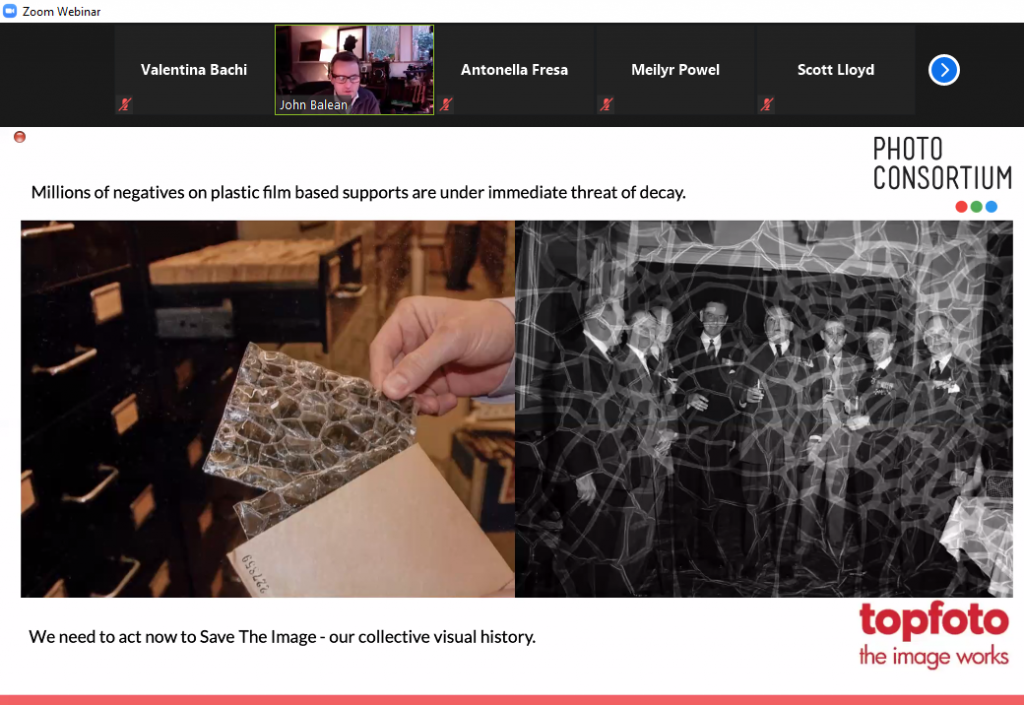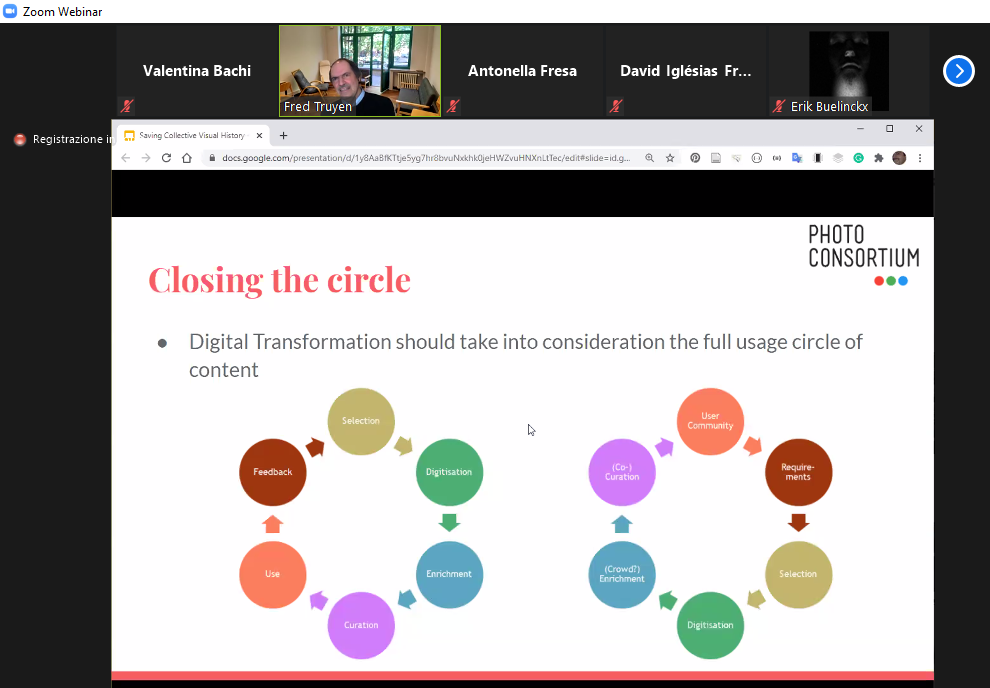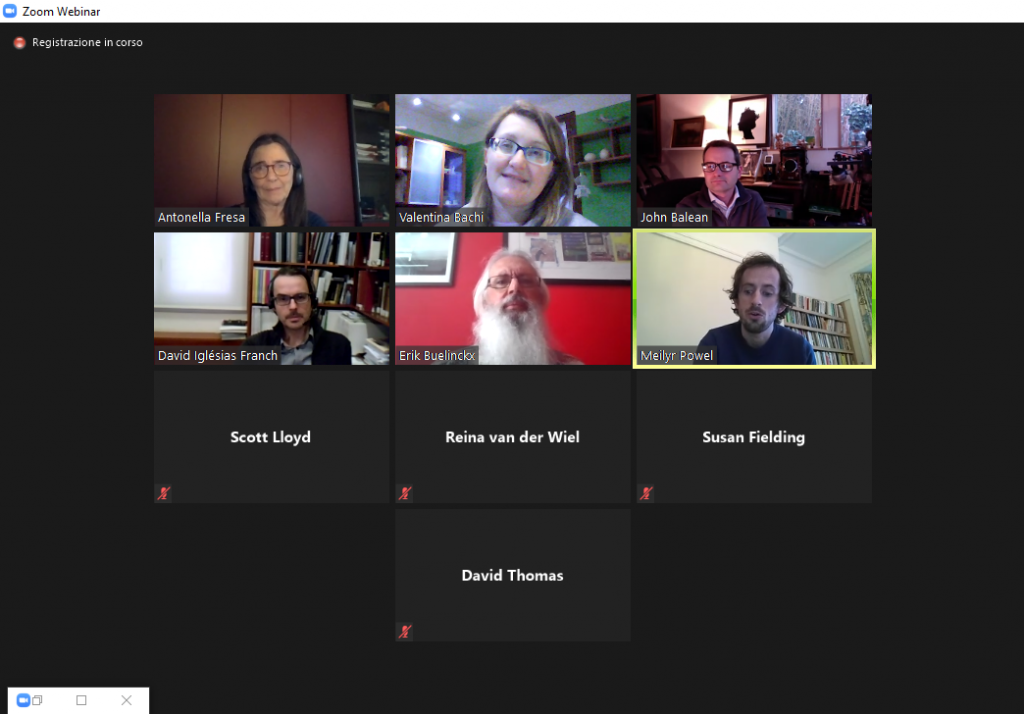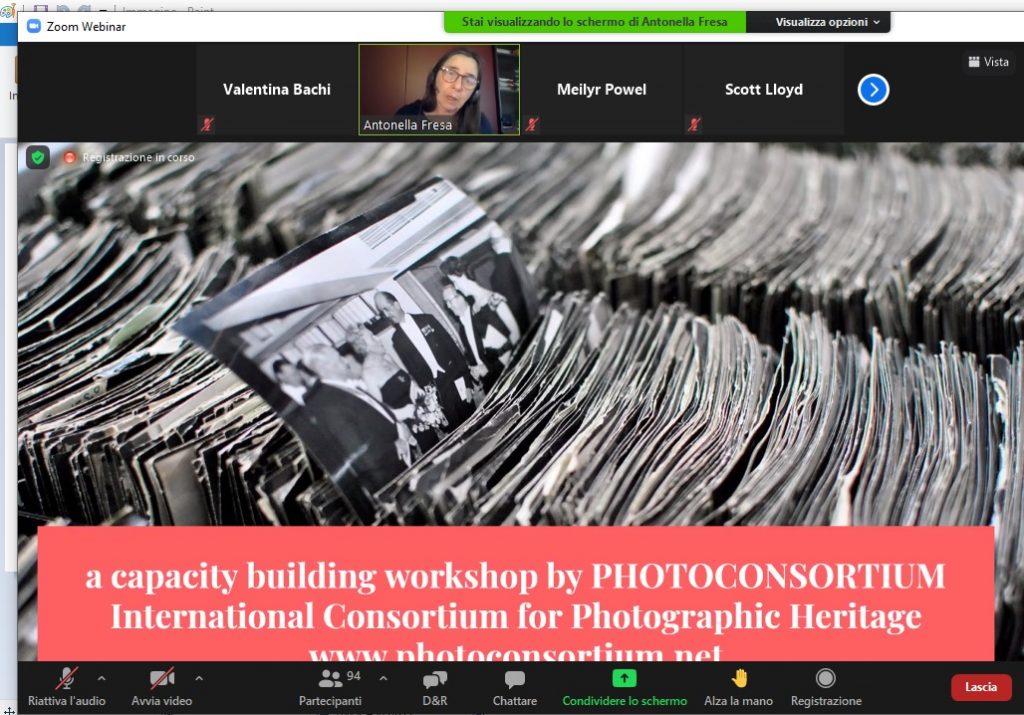|
Digital meets Culture https://www.digitalmeetsculture.net/article/saving-collective-visual-history-online-workshop-by-photoconsortium/ Export date: Thu Feb 12 16:39:47 2026 / +0000 GMT |
Saving Collective Visual History - online workshop by Photoconsortium
Collections of analogue material that depict our collective visual history is deteriorating, with urgent need of saving for future generations. If we can't save the analogue, we can't digitize it. When digitized, what do we do with the original objects? Lack of funds, difficult planning and unclear post-digitization actions, without obvious benefit, make it challenging for archives to move into digital transformation. Speakers from private companies and public bodies discussed the challenges and solutions encountered by public and private photographic archives to leverage digital technologies for preservation and enhancement of heritage photographs. This workshop was aimed at institutions dedicated to cultural heritage, and over 80 attendees joined the event also posing interesting questions. View here the presentation. DIGITAL PAST 2021 conference website: https://rcahmw.gov.uk/about-us/digital-past-conference/  Digitization is costly and time consuming, especially high-quality digitization using advanced techniques. Archives are forced by budget and time constraints to prioritize which objects to digitise, this does not always correspond to the deterioration rate of the original object. Many analogue materials that embed visual heritage (such as negatives, photographic prints and early motion pictures on film) is becoming illegible. The only way to preserve these images and sounds for future generations, is to digitize and transfer to accessible digital repositories. Despite minor funding from national grants and, in part, with EU calls, digitization of our collective visual history falls on Cultural Heritage Institutions. In principle, it is acknowledged that CHIs have full responsibility of their collections, including how they make them accessible both for view and for reuse. Without external support achieving this is not an easy task.  Private companies and public bodies can have different approaches and policies when prioritising their collections, but there are many shared issues:
Speakers from private companies and public bodies shared testimonies, expertise and knowledge driving a discussion to explore these crucial issues.  Speakers included:
This event is organized as part of the Europeana DSI4 capacity building effort. |
 The opening event for the prestigious DIGITAL PAST 2021 conference, organized by the Royal Commission of the Ancient and Historical Monuments of Wales, was a 1-hour capacity building workshop by PHOTOCONSORTIUM to share experiences and lessons learnt for visual collections' preservation, digitization and digital transformation.
The opening event for the prestigious DIGITAL PAST 2021 conference, organized by the Royal Commission of the Ancient and Historical Monuments of Wales, was a 1-hour capacity building workshop by PHOTOCONSORTIUM to share experiences and lessons learnt for visual collections' preservation, digitization and digital transformation.